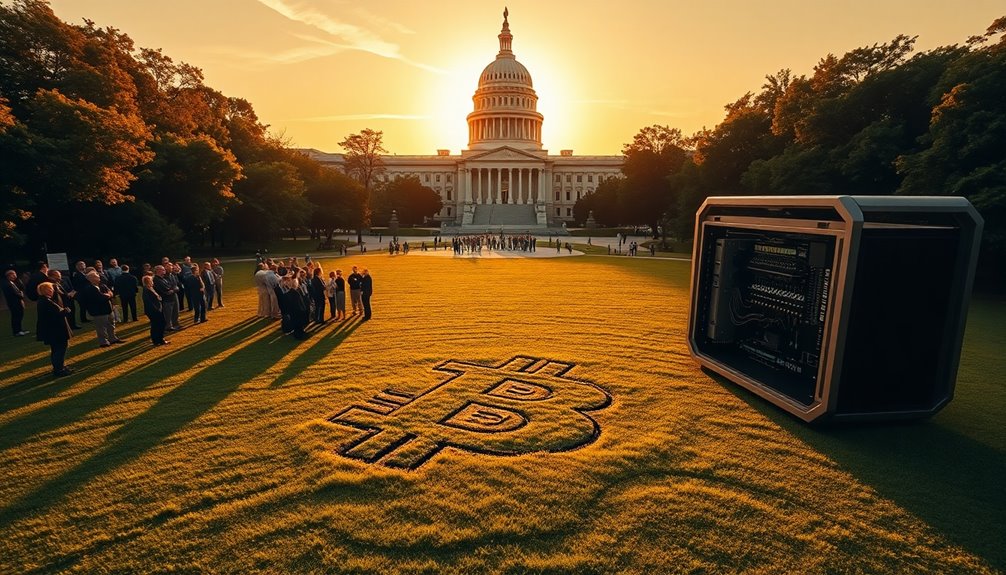You're witnessing a significant moment in financial history as Illinois moves toward establishing the nation's first state-owned Bitcoin reserve. This initiative, led by State Representative John M. Cabello, aims to provide a safeguard against inflation and enhance financial security for residents. With oversight from the State Treasurer, this proposal sets a precedent for other states. What could this mean for the future of cryptocurrency and state finances? The implications are worth considering.

In a bold move towards financial innovation, Illinois State Representative John M. Cabello has introduced House Bill 1844, also known as the Strategic Bitcoin Reserve Act. This legislation aims to establish a state-owned Bitcoin reserve as a hedge against inflation and economic volatility, providing a unique opportunity for residents to enhance their financial security.
By proposing this reserve, Cabello is positioning Illinois at the forefront of a national trend where states are exploring the integration of cryptocurrencies into their financial strategies. Blockchain technology can enhance transparency and accuracy in government operations, further solidifying the rationale behind this initiative.
The proposed Strategic Bitcoin Reserve Fund would be overseen by the State Treasurer, ensuring that the fund is managed with a focus on transparency. Regular reports will be mandated, allowing you to stay informed about how the fund operates and grows.
It's important to note that any Bitcoin added to the reserve must be held for a minimum of five years, which reflects a commitment to long-term financial planning rather than short-term speculation.
Accepting Bitcoin donations from residents and government entities is also a part of the investment strategy outlined in this bill. This innovative approach invites you to participate in a modern financial ecosystem, contributing to the state's economic stability.
However, you should be aware that Bitcoin's historical volatility poses risks. While it can serve as a currency or a speculative asset, its unpredictable nature raises questions about its stability as a reserve asset.
The implications of this reserve extend beyond financial security. Utilizing blockchain technology for secure transactions offers a glimpse into the future of government efficiency and data security.
However, the environmental impact of Bitcoin mining, which consumes significant energy, remains a concern. The scalability of blockchain technology is also a challenge, necessitating advancements in standardization for broader adoption.
Illinois isn't alone in this endeavor. States like Indiana, Texas, Utah, and Arizona are also considering similar initiatives, reflecting a growing acceptance of cryptocurrencies in government operations.
Internationally, countries like the Czech Republic are contemplating similar moves, indicating that the interest in Bitcoin reserves isn't confined to the U.S.
As Illinois takes this significant step, you might find yourself asking how this will affect you personally. The potential for a state-owned Bitcoin reserve could reshape your understanding of financial security and investment opportunities.









